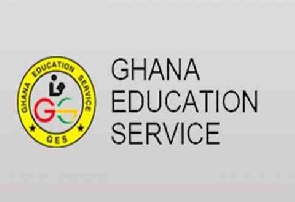Parents whose children are managed by GES as an institution have not been fully included in the policymaking and policy decision-making chain over the years. In contrast, the private school administration had made parents accountable for their children, and they complied. Since the constitution mandates free basic education for everyone and the achievement of SDG 4 is non-negotiable, policymakers must involve parents in the management of public basic schools to the fullest.
We can discuss the plethora of problems confronting our education sector and the quality of the human capital it generates, but leaving parents out of the equation represents a limited effort to address these problems comprehensively.
The government cannot provide sufficient textbooks, desks, and other teaching and learning tools for more than four million elementary and secondary school students. Even with financial support from concerned international organizations, the country’s education sector suffers from a lack of resources, accountability, and supervision.
What crucial role could parents play in mitigating the difficulties? Even though poverty remains one of the most significant obstacles for many parents to provide for their children’s education, it is crucial to remember that many variables that also contribute to this poverty might be mitigated to enable parents to save money on education-related expenses.
In rural areas, parents’ inability to fund their children’s education is mostly attributable to factors such as high fertility, the over-prioritization of social activities such as a funeral, and a negative attitude toward savings.
Parents could be motivated in any way to make their children’s education a top priority, which is a responsibility they must carry as part of their national duty. Again, the government can boost PTA in peri-urban areas by involving parents in school-related decision-making and leaving them with some obligations that are in no way burdensome.
In remote areas where parents struggle to provide their children with three square meals per day, the government can prioritize school nutrition and the supply of teaching and learning tools. Once parents realize that it is in their best interest to provide and support their children’s education, the government will have sufficient space to allocate resources where they are most needed.
Currently, the government cannot supply everything that millions of pupils require. This is not a modern occurrence; it has existed for centuries.
Government must reevaluate its innovative abilities and begin to build models that might effectively segregate basic schools so that policy decisions may have a narrative that is derived from the perspective of the parents, as opposed to the current centralized type of management.
Once the narrative of parents is eliminated from the equation, no method of supervision, accountability or resource distribution could attain the desired level of quality. This is because the government in its current form lacks the means to handle the rising school population, and enlisting the aid of peri-urban parents in supporting their children’s education will alleviate some of the mounting pressure in the sector.
Opinions of Friday, 17 February 2023
Columnist: WAL.COM



















